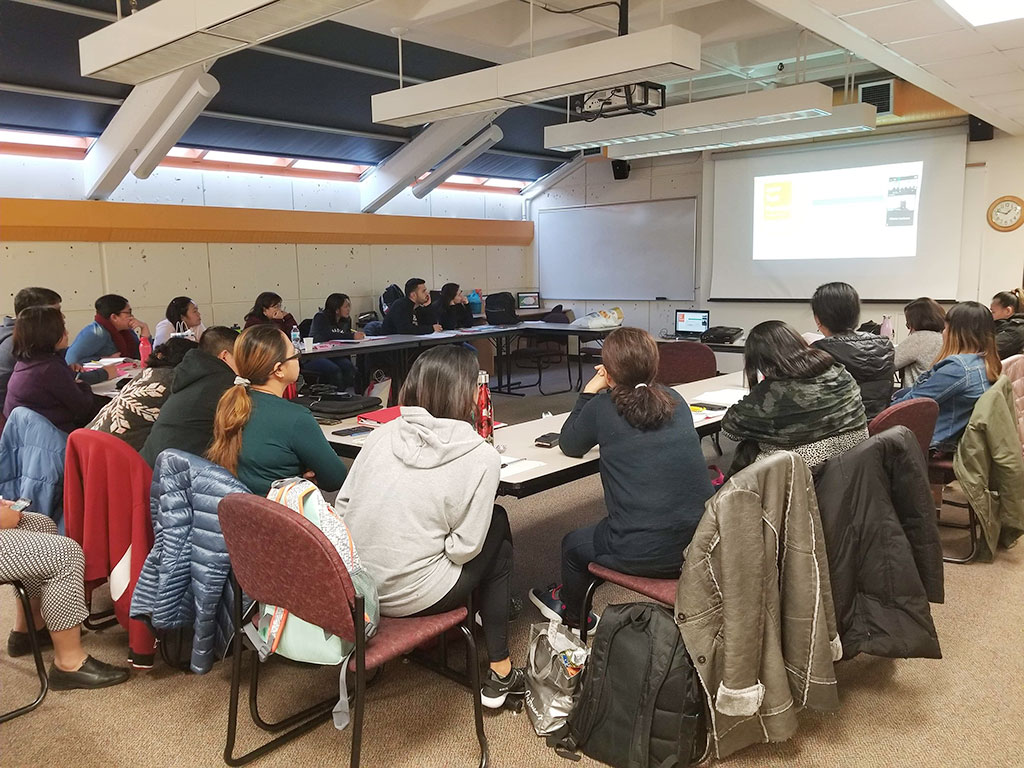Two days after New Year, on Jan. 3, a targeted drone strike killed a prominent Iranian General during his visit in Iraq. In an NBC News article, it said that the killing was “at the direction of US President Trump”. “The U.S. military has taken decisive defensive action to protect U.S. personnel abroad” it followed. The US-Iran Conflict is not new. It has been on-going since the U.S. orchestrated the overthrow of democratically elected Prime Minister, Mohammad Mossadeq in 1953.
Conflicts in the Middle East are also not new to Filipino migrants in the region. Over 100,000 Filipinos were working in Kuwait when Iraq invaded Kuwait during the Gulf War in 1990. That invasion and occupation triggered a US-led high tech military campaign known as “Operation Desert Storm.” A Philippine Compensation Claims Committee (PCCC) was created to respond to the victims that would supposedly file claims. There were 40,000 Filipino claimants that were approved by the United Nations at that time. Many of the beneficiaries of the $12 Billion are still waiting for the claim.
A couple of years after the September 11, 2001 terror attack in New York City, then U.S. President George Bush ordered the invasion of Iraq on March 2003. The Iraq war lasted until President Barack Obama called for the withdrawal of US troops in 2011. On the other hand, companies were bidding to win contracts from Washington to rebuild Iraq’s roads, airports, hospitals or other structures. Officials in Manila in 2003, expected to supply thousands of Filipino labourers in the war region. Secretary Patricia Sto. Tomas, from Philippine labor and employment said in an article “I’m confident that if they’re looking for skilled workers, they’ll come to us”. During President Gloria Macapagal Arroyo’s regime, she sent 4,200 workers as part of her commitment to the U.S. occupation of Iraq, primarily under contract with military bases of the United States. Along with it were 51 Filipino soldiers stationed there.
On July 7, 2004, OFW truck driver Angelo dela Cruz was kidnapped near Fallujah while transporting fuel from Saudi Arabia. The kidnapping of dela Cruz led to the withdrawal of Philippines troops from the coalition, the repatriation of OFWs and a deployment ban of Filipino workers seeking to work in Iraq. His abductors kept him for 16 days until the Philippine Government complied with the kidnappers’ demands.
The new conflict
As of the first half of 2019, there were about 2.4 million Filipino workers in the Middle East. In June of last year, the US-Saudi conflict with Yemen turned into a full-blown ground battle in different regions within Saudi territory. There were 40 thousand Filipinos that work and reside there.
On January 8, the Philippine government ordered the mandatory evacuation of Filipino workers from Iraq and Iran; a definite positive move to protect OFWs. However, prior to that, Philippine President Rodrigo Duterte tagged the Iranian side as the ‘enemies’ siding with the US aggressor. Not being neutral in the face of a looming war, President Duterte is implying that he is more than willing to allow the Philippines to become the US military’s launching pad against Iran. This then makes AFP a hostile force in the Middle East which is detrimental to its supposed task of evacuating Filipinos to safety.
The Philippine government created a special working committee to design the plan for the evacuation of Filipinos in the Middle East. The team is composed of Defense Secretary Delfin Lorenzana, Interior Secretary Eduardo Año, National Security Adviser Hermogenes Esperon Jr, Foreign Secretary Teodoro Locsin Jr, Labor Secretary Silvestre Bello III, and Transportation Secretary Arthur Tugade. Along with them, Environment Secretary Roy Cimatu was sent to negotiate the evacuation.
If we remember during the time of President Gloria Arroyo, Roy Cimatu was also in charge of the evacuation of OFWs in the Middle East. She allocated US$293,500 to the massive evacuation operations but as it turned out, no one was repatriated and the funds were spent to deploy 51 Filipino soldiers and to purchase military equipment to aid the US military invasion of Iraq. Aside from that, Cimatu was involved in the Php $150 Million botched repatriation mission in Lebanon during the 2006 Israel-Hezbollah conflict. A large amount was approved for repatriation. According to the Department of Budget and Management (DBM), the Philippine government can access a total of P1.82 billion for OFW repatriation. The funds will be coming from the Department of Foreign Affairs (DFA) will be P1.29 billion, P100 million from the Overseas Workers Welfare Administration (OWWA) 2020 budget and P500 million from the OWWA Fund. Corruption persists, putting the lives of the people that uplift the Philippine economy in grave danger.
For as long as the conflict in the Middle East persists, OFWs’ lives will always be in crisis. The fact that our kababayans were forced to go there goes to show that the lives they’re trying to run away from back home are worse.





